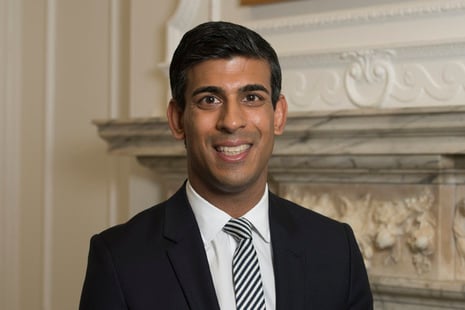HMRC umbrella company ‘checking tool’ looms for workers
Umbrella company consultation response and guidance due from HMRC, as more details come out on Tax Administration and...
READ MORE
Chancellor Rishi Sunak acknowledged on Wednesday that the UK’s economic emergency has only just begun, after the OBR forecast the economy will contract this year by 11.3 per cent, the largest fall in output for more than 300 years.

Despite borrowing a peacetime record of £394 billion this year, Mr Sunak said on Wednesday that the government will need to continue on spending and pledged a further £55 billion to tackle the pandemic in 2021-22.
These funds, which top the already spent £280 billion, will include £18 billion for testing, PPE equipment and vaccines, as well as £3 billion to help the NHS reduce its routine caseload backlog.
Mr Sunak also announced nearly £3 billion for the Work & Pensions Secretary to deliver a new, three-year Restart Programme to help over a million people who’ve been unemployed for over a year, find new work.
He, however, acknowledged that every job can't be protected, noting that he OBR expects unemployment to rise to a peak in the second quarter of next year of 7.5 per cent – 2.6 million people.
The Chancellor also announced a new program to protect public sector jobs and ensure fairness between the public and private sectors, by providing a pay rise to over a million nurses, doctors and others working in the NHS. He confirmed that the government will pause pay rises in the rest of the public sector next year, excluding those in the health service and on lower incomes.
As such, 2.1 million public sector workers who earn below the median wage of £24,000, will be guaranteed a pay rise of at least £250.
"And we want to do more for the lowest paid," Mr Sunak added, before announcing that the government is accepting in full the recommendations of the Low Pay Commission to increase the National Living Wage by 2.2 per cent to £8.91 an hour; to extend this rate to those aged 23 and over; and to increase the National Minimum Wage rates as well," he said.
"Taken together, these minimum wage increases will likely benefit around two million people."
The government is also upping Scottish government funding by £2.4 billion, Welsh government funding by £1.3 billion, and £0.9 billion for the Northern Ireland Executive.
Capital spending next year, Mr Sunak revealed, will total £100 billion – £27 billion more in real terms than last year.
"Our plans deliver the highest sustained level of public investment in more than 40 years," the Chancellor said, noting that these plans include affordable housing, better mobile connectivity and new roads and upgraded railways.
“Today government has funded the priorities of the British people, and now the job of delivering them, begins,” Mr Sunak concluded.